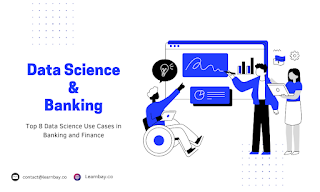20 Data Science Best Practices To Know Before The 2023 End
We will discover the tried-and-true data science advice for experiencing exponential development as a data scientist in this blog. If they wish to succeed in the area, prospective data scientists should bear a few important considerations in mind. Let's examine each suggestion closely:
Learn Competitive Skills through competitions.
Participating in data science competitions is a great way to test your skills and learn from competitors. You will get the opportunity to work with real-world datasets and resolve challenging issues by participating in these challenges. Participate in hackathons and Kaggle challenges to hone your competitive talents. Going to hackathons and building alongside others will help you expand your ideas and obtain better feedback. Kaggle competitions can occasionally seem to be isolated.
Also, with a comprehensive data science course in Bangalore, you can learn the essential data science skills and earn an IBM certification.
You may get information from some of the top data scientists in the world on Kaggle and take part in intriguing competitions using cutting-edge datasets to really hone your data science skills. Observable is a different free, community-supported website where you may learn a lot about everything related to data exploration.
Develop an understanding of business goals.
In addition to knowing how to develop a model, data scientists must be organized, proficient in statistics, and aware of how data work relates to a business goal. According to a common proverb, 85% of modeling initiatives fail; thus, it's important to know how to integrate your model with current company objectives and procedures to succeed. This often comes with knowledge and the capacity for original thought.
Stay Calm to tackle Complex Data.
You may anticipate a mess. The data is virtually never precisely what you need. It may be located everywhere and is typically messier than you anticipated. It might be challenging to predict how long a project or model will take to complete, but I have discovered that if you plan ahead and allow yourself a one- to two-day buffer, you will have more success communicating and achieving deadlines.
Don't neglect the basics.
It is crucial to have a solid mathematical and statistical basis. You will be able to comprehend and manage complicated data sets. You may also create complicated models and algorithms thanks to it.
Choosing the right model
Avoid becoming too engrossed in modeling techniques. Too many data scientists are preoccupied with selecting the ideal model when, in certain cases, no model is required at all. Sometimes a dashboard is the better outcome for a project, while other times, a rules-based system is more appropriate.
Collaborate with your team.
Get more at ease working with your team. You can make your tools more effective so that you can collaborate with the least amount of resistance. Attend to your coworkers to learn more about the data and potential uses for the models you develop because data scientists frequently work throughout the organization.
Keep up with the newest Technological Developments.
New tools and approaches are continually being produced in the subject of data science, which is a topic that is always growing. As a result, it's critical to stay current with emerging technology. This will guarantee that you can use the greatest tools to address challenging situations.
Be creative
Data scientists must be innovative in order to come up with fresh solutions to issues. This calls for creative problem-solving and thinking beyond the box. Furthermore, it's crucial to have good communication skills in order for people to comprehend what you're saying.
Learn data science through Bootcamps.
Another excellent choice for studying data science is attending bootcamps. Thanks to these intense program, you will get the chance to work on real-world projects and learn from seasoned data scientists. Learnbay offers a rigorous data science certification course in Bangalore, which can help you become a successful data scientist in just 6 months.
Attend conferences and Workshops.
Networking with other data scientists and staying current with industry developments by attending conferences and seminars. Also, this is a fantastic chance to pick up new knowledge and abilities.
Develop strong technical skills.
To be successful as a data scientist, you must have top-notch technical skills. With experience using databases and big data platforms, this involves proficiency in programming languages like Python and R. You should also be conversant with statistical modeling methods and machine learning algorithms.
Technological competencies typically come as no surprise and include fundamentals like statistics, programming, math, and data visualization. However, the non-technical abilities are just as crucial, if not more so. The capacity to communicate is the most crucial of these. It doesn't matter how excellent your technical analysis is if you can't effectively communicate your results to the appropriate audience at the appropriate time and in the appropriate manner.
Possess Business Acumen
It's critical to have commercial sense in addition to technical expertise. This will enable you to comprehend the company's demands and identify opportunities to use data to address issues. Success in this profession also requires communicating well with non-technical stakeholders.
Be able to use Critical Thinking.
In order to find patterns and insights in data, data scientists must be able to think critically. This involves having the ability to identify assumptions that need to be evaluated and ask the proper questions. Also, the ability to think creatively is necessary for developing original solutions.
Develop a Growth mindset.
A growth mindset enables you to accept failure as a learning opportunity rather than reject it. Also, it enables you to accept trying new things, ideas, methods, and processes; perceive feedback as a gift that will advance you; and, ultimately, be motivated by the success of others. These mindsets will greatly impact the success you will have as a data scientist in the future.
Adopt a problem-solving approach.
The role of a data scientist is to use data, AI, and ML techniques to address business challenges. Data science is motivated by problems. So, a data scientist must fully immerse oneself in knowing the operations and goals of the company. Instead, a science experiment conducted in a vacuum would be the basis for the data scientist's job.
Improve your interpersonal skills.
Data scientists must access data in order to do any task. They must understand who to ask and how to ask for information to obtain data access. It is simple to download a dataset from Kaggle. An undervalued talent is knowing who has the company's sales data for the preceding five years and how to ask for it.
Evaluate technology on a periodic basis.
Never put all your eggs in a framework, platform, or tool. Be prepared for technological change and have the skills to use new technologies. But, resist the temptation to use new tools because they are the newest toys. To determine which tools are most likely to become the next industry standard and which are more likely to remain niche goods, conduct thorough research and periodically analyze technology providers.
Clearly Demonstrate your suitability for the job.
In addition to looking for candidates with data science knowledge, hiring managers are also seeking candidates who are well-suited for the position and who will generate tangible results that will benefit the business, such as information on audience engagement, sales conversion, and other metrics.
For instance, there is now a demand for more than 150,000 data scientists in the US. And as we go with more digital transformation, this demand will only increase. A global scarcity of data science personnel and capabilities exists in the United States, Europe, and Asia.
It's also intriguing to point to studies demonstrating that since 2011, 94% of data scientists and grads have found employment. Ninety-four per cent is quite encouraging, and if you have data science expertise, you can be confident that heading this route would give you excellent career prospects. This demonstrates the importance of data science careers in the next few years.
Be curious to learn more.
Last but not least, a data science career requires someone with a curious and intuitive mind. An educated data scientist must have intuition and know when to go deeper than the surface to get significant data insights because they are only sometimes immediately apparent in big data sets. The capacity to ask questions on a frequent basis is one of a data scientist's most crucial soft skills. If you are bored, you can follow every step of the machine learning project lifecycle, but you won't be able to accomplish your goal or defend your findings.
Data science is always developing and expanding, so there is always more to learn. You learn these new tools and a new skill set one day, but the next day a more complicated tool and a desire for yet another crucial skill set overwhelm you. Thus, a data scientist must be curious and constantly develop their ability to adapt to these quick changes.
Know the role you want
Within data science, several different positions are quite different from one another. Knowing which positions suit your hobbies and preferences might be beneficial before you begin the profession. Whether you want to be a data architect or a visualization specialist, talk to individuals in the business and find out what function they play and who they work with. You need to know the position matches you. Once you know your job, you can focus on learning and developing the skills you will need to succeed in it.
Conclusion
I hope these pointers have assisted you in beginning your adventure in data science, a difficult but rewarding area. Keep studying and improving your skills by joining a good data science course in Pune, and you'll be well on your way to a rewarding career in data science!




Comments
Post a Comment